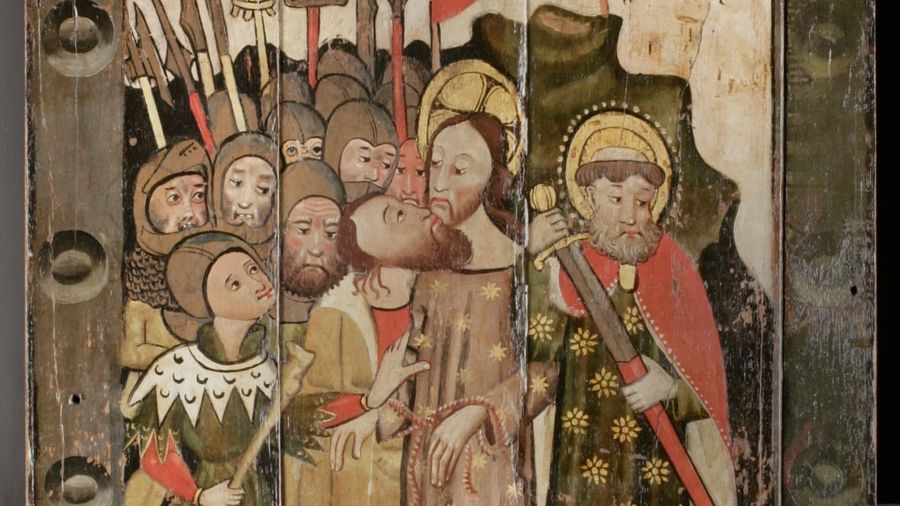Message of Abbot Paul - Wednesday 31st March
Message from Fr Paul for Wednesday, 31st March 2021
It was good to feel the warmth of the sun penetrating old bones yesterday afternoon, although Toby, my dog, doesn’t like the heat or direct sunlight and tends to stay in the shade on such days, running, ball in mouth, from tree to tree. If only it were going to stay as warm as this all over the Easter weekend. Still, we thank God for all his gifts. I don’t think I’ve seen such a glorious display of Spring flowers in Herefordshire for many years, or is it the thought of gradually coming out of lockdown? I wonder when we’ll be able to relax a little bit in church, but one day at a time! Holy or Great Wednesday is also known as Spy Wednesday, a reference perhaps to Judas, who, within the group of the Apostles. became a spy for the high priests, to whom he sold himself. What a sad end to come to. Today’s Gospel passage is from Matthew, (Mt 26: 14-25), and covers the same ground, more or less, as yesterday’s from John.
“One of the Twelve, the man called Judas Iscariot, went to the chief priests and said, ‘What are you prepared to give me if I hand him over to you?’ They paid him thirty silver pieces, and from that moment he looked for an opportunity to betray him.” We begin with Judas and note that it was he who approached the chief priests, asking them for money to betray Jesus. I wonder what moved him to do that. Is there always one bad apple in a basket. Tragically, many sell themselves for less. Then come the preparations for the Passover. “Now on the first day of Unleavened Bread the disciples came to Jesus to say, ‘Where do you want us to make the preparations for you to eat the Passover?’ ‘Go to so-and-so in the city’ he replied ‘and say to him, “The Master says: My time is near. It is at your house that I am keeping Passover with my disciples.”’ The disciples did what Jesus told them and prepared the Passover.” Strange that we don’t know the name of the person who lent or rented the place where Jesus and his disciples gathered for the Passover meal. Where were the women who followed them everywhere and looked after their needs, those who stood near the cross and tended to his dead body? A lot is left unsaid.
“When evening came, he was at table with the twelve disciples. And while they were eating, he said ‘I tell you solemnly, one of you is about to betray me.’ They were greatly distressed and started asking him in turn, ‘Not I, Lord, surely?’ He answered, ‘Someone who has dipped his hand into the dish with me, will betray me. The Son of Man is going to his fate, as the scriptures say he will, but alas for that man by whom the Son of Man is betrayed! Better for that man if he had never been born!’ Judas, who was to betray him; asked in his turn, ‘Not I, Rabbi, surely?’ ‘They are your own words’ answered Jesus.” This account is similar to John’s, which we read yesterday, but here each in turn asks, “Is it I, Lord?” When it comes to Judas, he says, “Not I, Lord, surely?” implying that it cannot be him, but Jesus knows full well who it is. “They are your own words,” he replies. This makes for uncomfortable reading, for we are only too conscious of our own failures and shortcomings, if not outright betrayal, in our fidelity to Christ. What about the Judas in me? Can I find the honesty and the humility to recognise what needs profound forgiveness and a radical conversion in my life? Lord, have mercy on me and show me the way of life. Amen.










